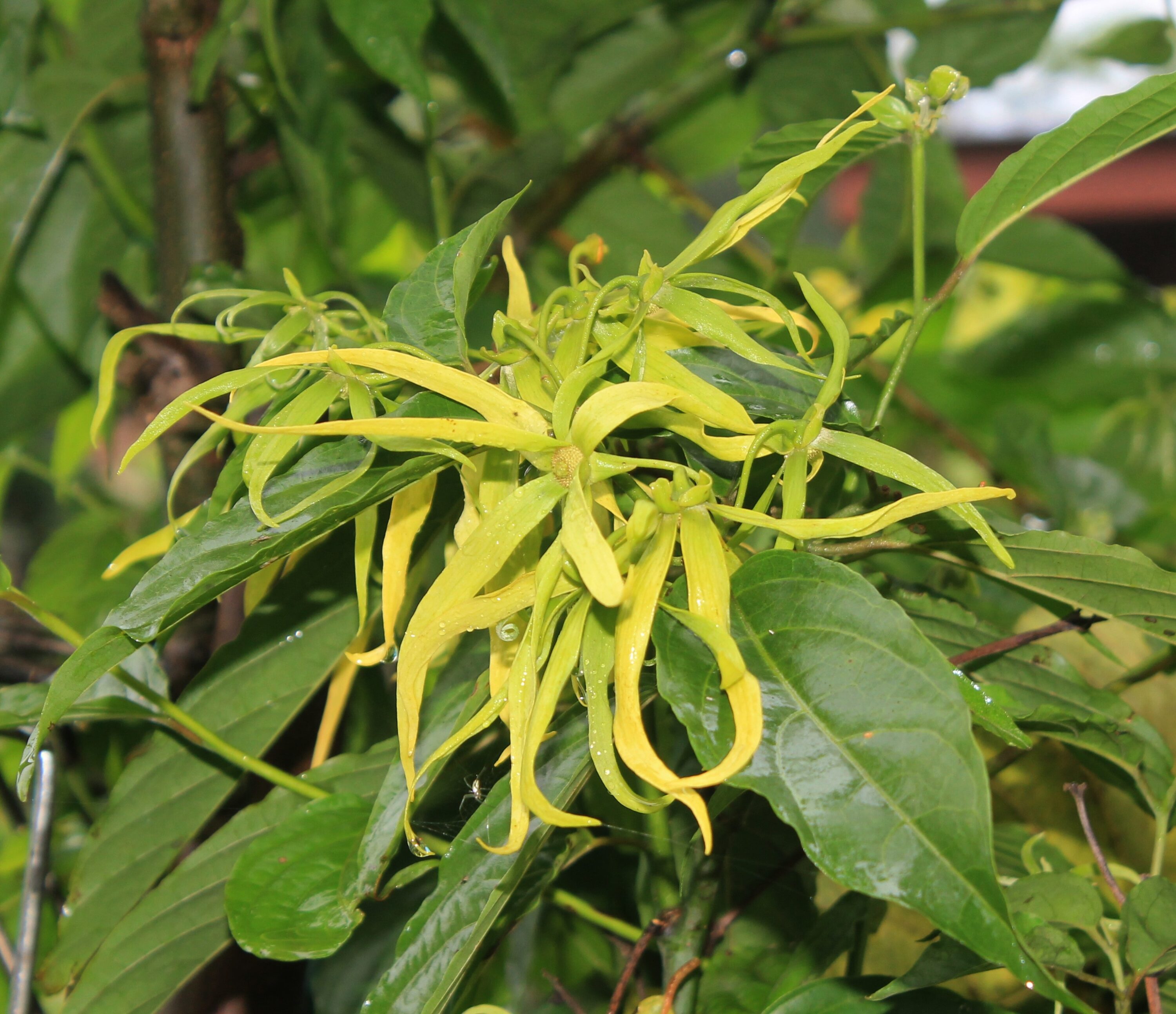Ylang-Ylang flower

INCI
Cananga Odorata Flower Oil
ORIGEN
Vegetal. The Ylang-Ylang flower is a tree of origin from India, Java and the Philippines that has spread to other continents such as South America.
ALMA DE LA ESENCIA
Natural cosmetics. Ylang-Ylang contains Germacrenno-D, beta-karyophyllene and linalool which have good properties for the skin. Its name comes from Malay and means “flower and flowers.” In Indonesia, Ylang-Ylang flowers are spread on the bed of newlyweds for its aroma and aphrodisiac properties.
BENEFICIOS
To offer you an effective cosmetic at EZENTIA we have decided to use this active essence due its following properties:
- Anti-inflammatory. Ylang-Ylang oil contains linalool and beta–karyophyllene which is a component that has anti-inflammatory properties.
- Antiseptic. The Ylang-Ylang flower is one of those with the highest content of Germacreno-D, a very effective active against bacteria and fungi.
- Astringent. Due to its ability to regulate the sebaceous glands, it helps to prevent oily skin.
- Antioxidant. The antioxidant properties of Ylang Ylang oil help to reduce free radicals which are responsible for premature aging.
- Synergistic. It is an oil that combines very well with citrus oils, geranium enhancing their beneficial effects in the skin.
REFERENCIAS CIENTÍFICAS
González-Minero, et al. The Use of Plants in Skin-Care Products, Cosmetics and Fragrances: Past and Present
Hongratanaworakit, T & Buchbauer, G. Evaluation of the Harmonizing Effect of Ylang-Ylang Oil on Humans after Inhalation.
Gaydou, E. M., et al. Multidimensional data análisis of essential Oils: Application to ylang-ylang
